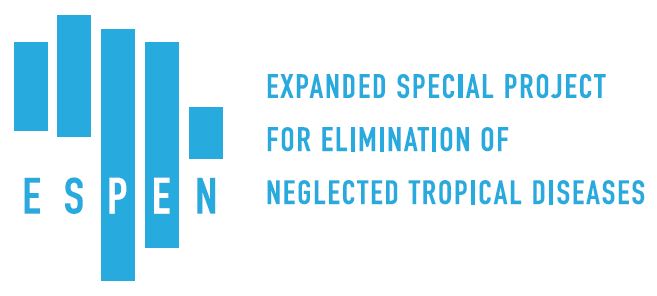
The Expanded Special Project for Elimination of Neglected Tropical Diseases (ESPEN) is a five year project which was launched by the World Health Organization’s (WHO) Regional Office for Africa (AFRO) in May 2016 to provide national NTD programmes with technical and fundraising support to help them accelerate the control and elimination of the five Neglected Tropical Diseases amenable to Preventive Chemotherapy (PC-NTDs) with the greatest burden on the continent, namely Onchocerciasis, Lymphatic Filariasis, Schistosomiasis, Soil Transmitted Helminthes and Trachoma, which collectively affect hundreds of millions of people.
ESPEN will contribute to ensuring that national NTD programmes have the data, expertise and financial resources they need to accelerate the fight against these diseases by coordinating Partners and providing technical support. ESPEN was established following the closure of the African Programme for Onchocerciasis Control (APOC), which during its 20-year mandate made a major contribution to the reduction in onchocerciasis (river blindness) in Africa. ESPEN will maintain the gains made over the past two decades by integrating this approach across the five PC-NTDs.
Contact
Dr. Maria REBOLLO POLO
Team Leader
Email: rebollopolom [at] who.int (rebollopolom[at]who[dot]int)
Related Link
Kuwait Fund and WHO in $4million multi-year agreement to tackle Neglected Tropical Diseases in Africa
Neglected Tropical Diseases can be eliminated in our lifetime: A Call for Action
ESPEN Portal